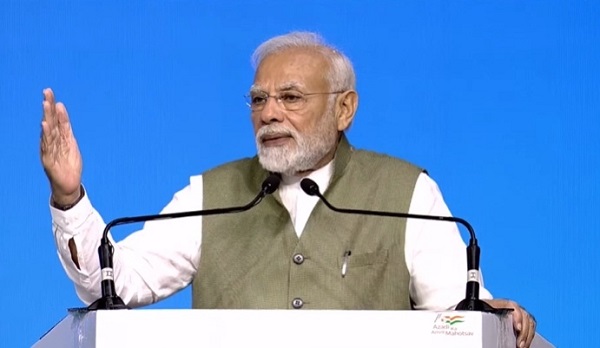New Delhi, (Asian independent) India is shedding its colonial hangover rapidly, the newly-opened Central Vista is a case in point. Many schemes are being rolled out to capture this new underlying credo.
On Saturday, Prime Minister Narendra Modi will unveil the National Logistics Policy, a spanking new intent which will create capacities through a well thought out strategy and synergy between the private sector and the government to unleash its intellectual horsepower.
Commerce and Industry Minister Piyush Goyal on Tuesday articulated the government’s vision saying that the inherent spirit of the private sector has to be unleashed with the government handholding the new startups and entrenched players by nursing them through the pain points to create a logistics framework and network across the country.
The Prime Minister on his birthday (September 17) will gift this new policy initiative to reduce logistics costs so that there is seamless movement of goods across the country.
It will focus on areas like process re-engineering, digitisation and multi modal transport. High logistics costs in India act as an impediment and bring down the competitiveness of domestic goods in the global market.
According to Goyal, the country spends around 13 to 14 per cent of gross domestic product (GDP) on logistics costs. While countries like Germany and Japan, which are known for their developed logistics infrastructure and systems, spend just around eight to nine per cent of the GDP on logistics costs.
Moreover, the logistics sector has more than 20 government agencies, 40 Partner Government Agencies (PGA), 37 export promotion councils, 500 certifications, over 10,000 commodities and a $200-billion market size. It also involves 200 shipping agencies, 36 logistics services, 129 Inland Container Depots (ICD), 166 Container Freight Stations (CFS), 50 IT ecosystems, banks and insurance agencies.
According to the World Bank Logistics Index of 2018, India is ranked 44th in logistics costs, far behind countries like the United States and China which are at the 14th and 26th positions, respectively. On the Logistics Performance Index, Germany is ranked No. 1.
The Ministry of Commerce and Industry stated that the logistics sector provides livelihood to more than 22 million people and the new policy is aimed at improving the sector by facilitating 10 per cent decrease in indirect logistics costs, which will enable the growth of five to eight per cent in exports.
The bulwarks of the new policy to be rolled out by PM Modi will feature:
* Integration of Digital System (IDS): Under this, 30 different systems of seven different departments will be integrated, including road transport, railway, customs, aviation, foreign trade and commerce ministries. These departments will have their own digital data which will be integrated under IDS. This is expected to improve shorter cargo movement.
* Unified Logistics Interface Platform (ULIP): Similar to IDS, this system will also be utilised for smooth cargo movement.
* Ease of Logistics (ELOG): Under this, the new policy will simplify the rules and the logistics business will be eased.
* System Improvement Group (SIG): This system will be used to monitor all logistics-related projects regularly and will facilitate the removal of any hurdle.
Additionally, the policy will also aim at skill development. The policy is also expected to generate employment.








